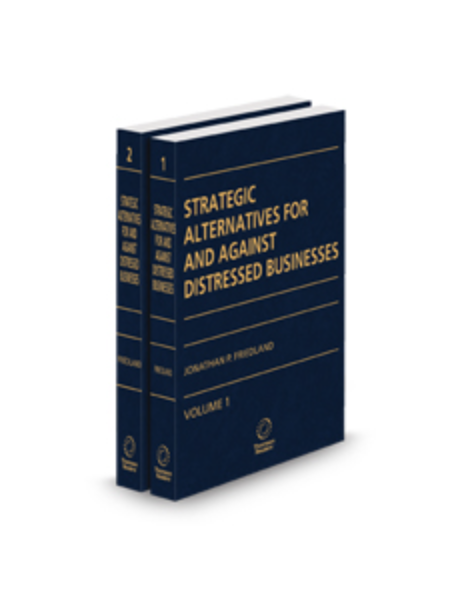3 Unique Uses for Receiverships in Missouri
Thorough bankruptcy laws have long existed in the United States. They were enacted and revised throughout the nineteenth century in response to deteriorating economic conditions. The goal of these laws is to provide protections for debtors while a collective action problem is sorted out by creditors. Despite their longevity and two hundred years of use, bankruptcy laws fail to provide options for creditors and debtors to find a solution in several situations. Recently, however, receivership statutes in Missouri have provided fast, clear, and accessible means to creditor protection. Previously, creditors’ security interests that lay in farms, the cannabis industry, and unsecured interests lacked easily accessible legal protections or protections at all for their assets. Let’s take a look at how that’s changed.
Farms
The United States Bankruptcy Code prevents creditors from filing for involuntary bankruptcy against farmers and their farms. This rule is rooted in the belief that the variables involved in farming and the agricultural economy are far beyond the control of any individual. Since 1898, the United States Bankruptcy Code has prevented involuntary bankruptcy filings against individuals and organizations that get 80% or more of their revenue from farming operations. Creditors are often pursuing involuntary bankruptcy to prevent the debtor from transferring assets in order to avoid collection. In the case of a farm in debt, creditors do not have the option of pursuing involuntary bankruptcy. So what can creditors do?
In Missouri and many other states, receivership laws provide relief to creditors facing this situation. A general receiver can be given broad control of assets as well as litigation rights. This combination of control and the right to litigate allows a receiver to benefit creditors in two distinct ways. The receiver can prevent any transfer of assets under the Missouri Uniform Fraudulent Transfer Act. Finally, like other receiverships, the receiver can sell property free of liens and claims, attaching any liens or claims to the profit from the sale. Generally, the receiver can also protect the value and security of collateral and assets for the benefit of the creditors. The only restriction that causes many farm receiverships to differ is that a receiver cannot sell real estate on which “crops, livestock or aquaculture” is produced without the farmer consenting to the appointment of the receiver. Regardless of this, the applications for a receiver in respect to an insolvent farm are a substantial step forward compared to the lack of solutions provided by the Bankruptcy Code.
Cannabis-Related Businesses
Commonly referred to as the supremacy clause, Article VI of the United States Constitution states that federal laws are superior to state laws, including state constitutions. Because of this, the legalization of cannabis in many states does not prevent the federal government from prosecuting individuals and entities for possessing, selling, or growing cannabis products. The drug is still illegal at the federal level. That means that business operations, including creditors, cannot turn to any federal protection for their assets when debtors are insolvent or refuse to pay debts as they come due. Most importantly, creditors and debtors alike lose access to federal bankruptcy provisions. With thirty-six states allowing for the use of cannabis and an estimated $60 billion industry, lacking any bankruptcy protections is worrisome whether you are involved as a creditor, debtor, or even an outsider looking in.
Fortunately, the flexibility and increasing refinement of receivership laws have allowed receiverships to successfully fill these gaps produced by federal restrictions on cannabis. In many states, receivers have been successfully appointed and used to liquidate and wind down cannabis-related businesses. This success is substantial news because it provides a functional alternative for the cannabis industry and other businesses that have served it. Furthermore, it displays the dynamic attributes of receivership and the importance of developing quality statutes in your state.
Intercreditor Applications
In Missouri under the MCRA, an automatic stay is applied whenever property or an entity is placed in receivership. Bankruptcy filings (involuntary and voluntary) also create a stay, but a receivership is much more accessible to creditors than attempting to force an involuntary bankruptcy. A single creditor can file for receivership, and there is a lower statutory threshold to file a motion for the receiver (as compared to involuntary bankruptcy proceedings). The key implication here is that it automatically creates a stay, and it is reasonably accessible to most creditors to motion for a receiver when there is good cause. For creditors, especially unsecured creditors, the stay can halt a competing creditor’s lawsuit or execution sale. Additionally, if the entity is insolvent and is subject to a wind-down and liquidation, the receiver will turn to the claims administration process, presenting an opportunity for other creditors to recoup losses rather than just the previous creditor pursuing litigation.
Gaps in the bankruptcy code cause vulnerability in businesses, individuals, and their properties. Without proper protections, creditors and debtors can lose out significantly. Properly developed and well-thought-out receivership laws can successfully fill gaps left by the bankruptcy code and provide fast, effective solutions to myriad problems that could arise in business. These are just a few successful examples of how receiverships have been applied to solve unique problems across the country. As the world is always evolving, we expect more interesting applications for receiverships to arise, and we look forward to seeing what demands receivers can meet.
Enjoying these receivership insights? Check our other receivership blogs below or reach out to us today at info@nmblstrategies.com to learn firsthand about our experience as a receiver.




